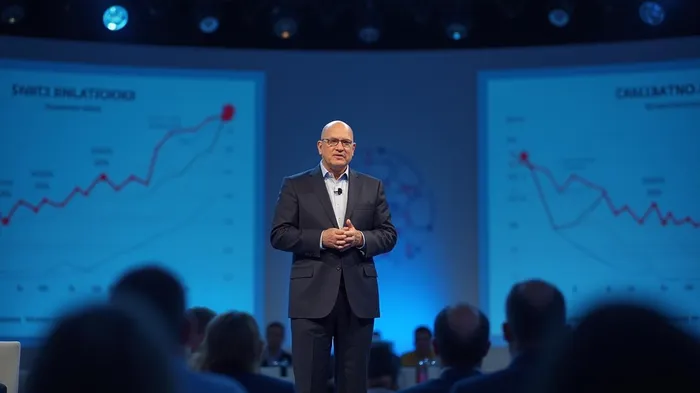Steve Ballmer’s Dual Front: Defending Education Data and Navigating Tariff Turbulence
The former MicrosoftMSFT-- CEO turned data advocate, Steve Ballmer, has been at the center of two high-stakes battles this week: one to preserve federal education metrics and another to warn about the economic fallout of new tariffs. His dual roles—as a major shareholder in tech’s biggest names and the CEO of the nonprofit USAFacts—highlight the complex interplay between corporate influence and public policy in an era of geopolitical uncertainty.

The Education Data Fight
Ballmer’s most urgent advocacy this week targeted the National Center for Education Statistics (NCES), an agency he argues is vital to tracking the nation’s academic health. In a letter to U.S. Education Secretary Linda McMahon, he warned that proposed budget cuts—shrinking the NCES workforce from 100 employees to just three—would cripple efforts to evaluate school performance and measure returns on public investments. “Numbers are the least partisan thing you can have,” he told Semafor’s audience, emphasizing the need for standardized data to expose gaps like Washington state’s rising graduation rates paired with stagnant math proficiency.
The stakes are high. Without federal oversight, states may inflate metrics to secure funding while neglecting core issues. “If you can’t measure it, you can’t fix it,” Ballmer argued, citing a USAFacts report showing that 40% of U.S. fourth graders lack basic reading proficiency—a trend obscured by graduation rate inflation.
Tariffs and Tech Turbulence
Ballmer’s corporate concerns took center stage as he criticized President Trump’s broad tariffs on over 100 nations, warning they would disrupt consumer stability and investor confidence. Microsoft’s own 6% stock drop over two days underscored his point, as the tech giant faces delays in its $80 billion AI infrastructure rollout. “Tariffs create turmoil,” he said, speaking alongside current CEO Satya Nadella at Microsoft’s 50th-anniversary event.
The timing couldn’t be worse for Ballmer, who holds $16 billion in Microsoft shares. While he reaffirmed faith in the company’s long-term AI ambitions, the immediate impact is stark: Microsoft’s stock is on track for its worst monthly performance since 2009. Ballmer linked this volatility to geopolitical overreach, noting that tariffs risked stifling innovation in cloud computing and data centers—core to Microsoft’s future.
The Talent Pipeline Crisis
Beyond immediate economic blows, Ballmer sounded alarms about the U.S. losing its edge in high-tech talent. “We need a big immigration solution to retain PhD-level scientists,” he said, tying this to USAFacts’ work tracking STEM trends. The nonprofit’s data shows that 60% of U.S. tech PhD graduates are foreign nationals, many of whom leave due to visa hurdles. Without reform, Ballmer warned, AI and cloud dominance could slip to rivals like China.
Conclusion: Data, Diplomacy, and Dollars
Ballmer’s week underscores a critical truth: in today’s data-driven economy, transparency and talent are inseparable from corporate success. The NCES’s survival could determine whether states prioritize real educational progress, while tariffs threaten to derail Microsoft’s—and America’s—AI ambitions.
The numbers tell the story: a 6% stock plunge and a 40% illiteracy rate in fourth graders reveal the high cost of short-sighted policies. Ballmer’s dual role as corporate leader and data advocate offers a roadmap—invest in metrics that hold power to account, and protect the talent pipelines that fuel innovation. For investors, the lesson is clear: in an era of volatility, data isn’t just a tool—it’s a lifeline.
Actionable Takeaway: Monitor Microsoft’s cloud infrastructure projects and U.S. education metrics as key indicators of long-term tech competitiveness.
Tracking the pulse of global finance, one headline at a time.
Latest Articles
Stay ahead of the market.
Get curated U.S. market news, insights and key dates delivered to your inbox.

Comments
No comments yet